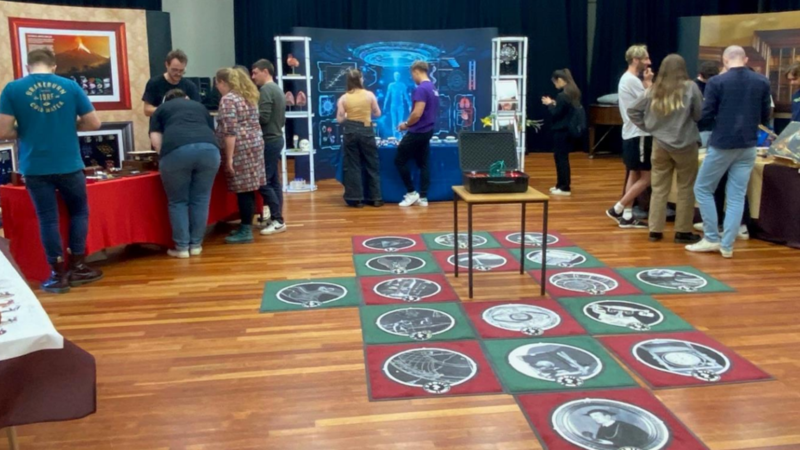INT News
Are you funded partly by the Isaac Newton Trust? Have you recently had a project or personal achievement you would like to share?
We would love to hear from you and share your accomplishments with the wider community. No success is too small!
Get in touch by emailing us at administrator@newtontrust.cam.ac.uk
Post-Doc Spotlight: Dr Joseph Millard!
The INT is delighted to support Dr Joe Millard through our matched funding Leverhulme Early Career Fellowship scheme Joe has recently published a new paper as part of the GLobal Insect Threat-Response Synthesis (GLiTRS) project, titled ‘A Multithreat Meta-Analytic Database for Understanding Insect Biodiversity Change’. This represents an incredible achievement and is the result of a huge collaborative effort. To celebrate, we reached out to Joe for some insights into his fellowship experiences so far and to better understand his project.
Joe shared “The aim of my fellowship is to research new forms of AI and economic mechanism that might help solve the biodiversity crisis in the future. Specifically, I have been thinking about how autonomous payment systems might be combined with remote biodiversity monitoring to derive new forms of biodiversity credit.
“I have been very fortunate to have interacted with some brilliant scientists in my PhD and postdoctoral work, both at Cambridge and elsewhere, who I have continued to collaborate with on my fellowship. I have the opportunity to learn from members of the Agroecology group led by Professor Lynn Dicks, and from the broader set of conservation groups at Cambridge, including the Conservation Science group, Insect Ecology group, and the many conservation organisations housed in the David Attenborough Building.
“My fellowship has been hugely enjoyable. The intellectual freedom I've been given to slow down, and think has been a real privilege. At an early career stage, researchers often do not yet have the administrative responsibilities that come with seniority, meaning I can focus on learning and my research. I do miss being involved in supervision and teaching. A fellowship is in some ways like doing another PhD, as opposed to a research associate position where you're integrated into a broader group of early career researchers with an individual goal in mind.”
We asked Joe if he could share any advice for PhD students and those applying for their first post-doctoral roles. Joe told us, “My first piece of advice is that published papers are the primary means for you to demonstrate your capability as a researcher. As a PhD student, aim for quality not quantity, and prioritise papers you are leading as first author.
“Second is I'd suggest not applying for a postdoctoral fellowship straight out of a PhD. To both be competitive for a fellowship, and to increase the size of your network, my suggestion would be to start with postdoctoral research associate (PDRA) positions on large projects that sit outside your immediate area. This will give you time to finish off any PhD papers, supervise some master’s students, and demonstrate again that you can excel picking up a new area of research.”
We look forward to seeing how Joe’s project develops and cannot wait to read future publications.
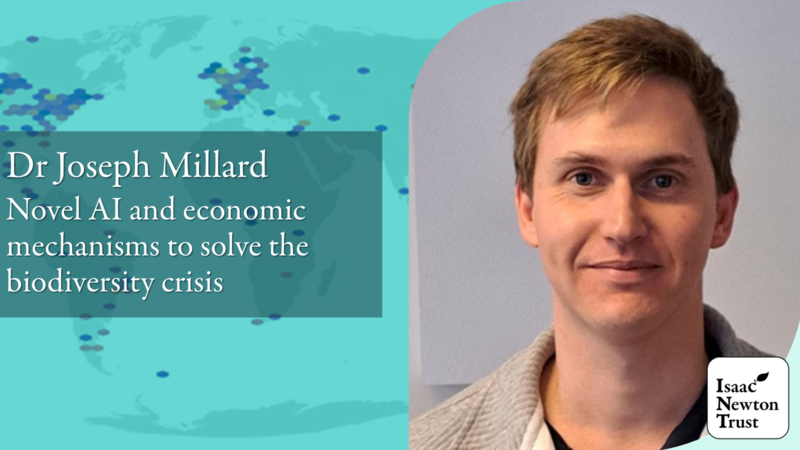
Post-Doc Spotlight: Dr Mariam Rashid!
The Isaac Newton Trust is delighted to support the Kavli Centre for Ethics, Science and the Public through the Strategic Research Grants programme. Dr Mariam Rashid works as the Centre’s Engagement Associate and is directly supported by this grant.
Mariam studied an integrated masters in Physics at Durham University, spending a year at Osaka University before moving on to her PhD in Cosmology at the University of Manchester's Jodrell Bank Centre for Astrophysics. She is now a postdoctoral fellow at the Kavli Centre for Ethics, Science, and the Public, here in Cambridge.
The centre is comprised of a research arm as well as an innovation and translation arm. Mariam works in the latter, taking the centre's cutting-edge research on dialogue and translating it into engagement events.
The centre's flagship project is The Hopes and Fears Lab — a space where scientists and publics (we recognise the diversity of 'the public' in pluralising the word) can spend 15 minutes discussing their hopes and fears for our shared, scientific future.
In May, Mariam presented this project at EUSea —the European Science Engagement Association's annual conference. The 'mini manifesto' recently published by the centre gave conference goers — and anyone who is interested in the Lab model — a one-stop guide to delivering their own.
Mariam told us, "It was such a fantastic opportunity to attend and present at EUSea. They had a record number of applications this year, and I was honoured to be given the space to speak. I'm very grateful to the organisers, and to all of the other delegates who showed great enthusiasm for the project. Really looking forward to the international Lab events we now have in the pipeline!"
You can read more on this mini manifesto here
You can stay up to date with the Hopes and Fears Lab over on their website
The Lab itself has also been published in the Journal of Science Communication
We are so proud of how much Mariam has contributed to this project and are excited to see how Mariam and the lab develop in the future.
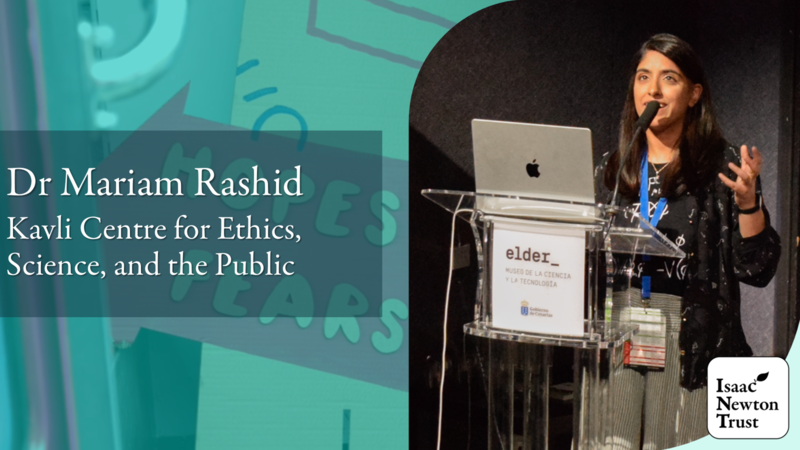
Thank You to all Garden Party Attendees!
Earlier this month, the Chair of the Trustees, Professor Frank Kelly hosted INT's Fellows’ Garden Party in the Fellows’ Bowling Green at Trinity College Cambridge. We were thrilled to see so many in attendance on a warm and sunny afternoon!
It was a delight to talk with our Early Career Fellows and award holders and hear about their projects, while providing the space for some respite from busy academic life. It was also an excellent opportunity to welcome some new faces who had recently been awarded INT funding. We really look forward to seeing your projects develop!
It was lovely to see so many of the Trustees, members of our Sub-Committees, and professional staff who all contribute to the smooth running of our funding rounds and success of the Trust.
A massive thank you to Trinity College for facilitating a wonderful networking experience for those present (the delicious catering definitely helped break the ice!)
Photo credit goes to the brilliant Jenny Hayward from the Postdoc Academy, University of Cambridge
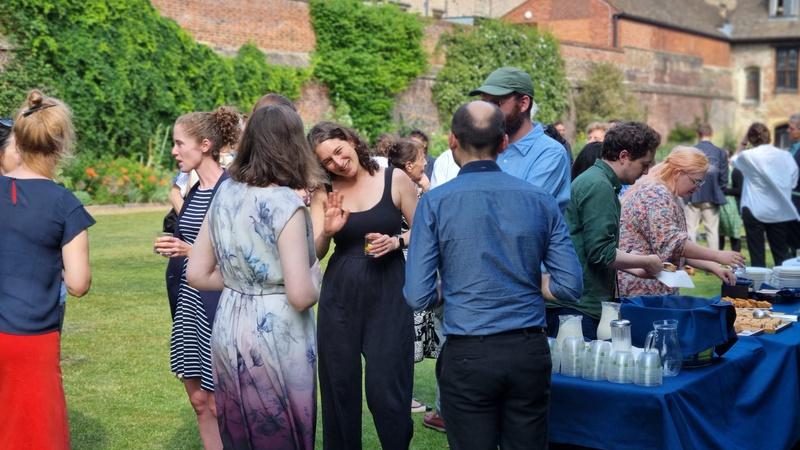
Post-Doc Spotlight: Dr Luis Fernando Bernardi Junqueira!
The INT is proud to support Dr Luis Fernando Bernardi Junqueira through our matched funding Leverhulme Early Career Fellowship scheme.
We are delighted to share that Luis has recently received the 2024 Royal Asiatic Society Bayly Prize, the UK’s most prestigious award for doctoral research in Asian studies, as well as the 8th Dissertation Prize of the Division of History of Science and Technology from the International Union of History and Philosophy of Science and Technology, the world’s largest academic association for the history and philosophy of science.
Luis told us, “as someone from the Brazilian countryside and the first in my extended family to attend university, these awards mean a great deal to me. I hope they will further motivate me to complete my first monograph in the coming months and begin work on my second book-length project, which explores the history of mental healing movements in modern East Asia. I am deeply grateful to the Leverhulme Trust and the Isaac Newton Trust for their generous financial support, without which none of these projects would be possible.”
We would like to extend a huge congratulations to Luis for these massive achievements! We can’t wait to see how Luis’ project develops.
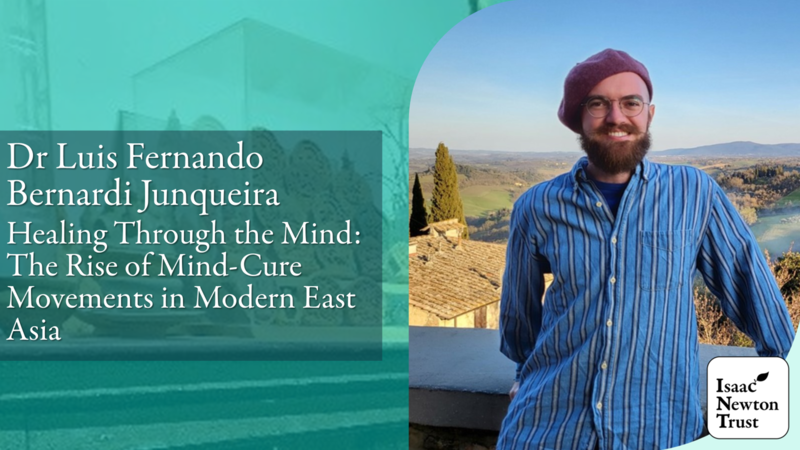
Post-Doc Spotlight: Dr Kelly Fagan Robinson!
Dr Kelly Fagan Robinson held Leverhulme Early Career matched funding with the Isaac Newton Trust between 2021-2024. Kelly’s project, ‘Communication Faultlines on the Frontlines’, charted and analysed the ways that individual experiences, bodies, and moral judgments contribute to specific definitions of value and social action.
She continues to work with young people and their extended social and educational networks to facilitate a citizen-science, multimodal approach called ABC: Anthropology By Children. Anthropology By Communities.
Kelly told the Trust, “It is not an overstatement to say that Leverhulme and Isaac Newton Trust funding of this project has transformed not just my approach to anthropology, but to my life. It has enabled me to reckon with things within my discipline and within broader society which have always felt, to me, incomplete and imbalanced, and to begin to address these elements in ways that feel like important contributions to me. I am incredibly grateful for your support.”
We are delighted to hear that this project was such a success! Since completing this project, Kelly has gone on to secure a fixed-term Assistant Professorship at University of Cambridge in the Department of Social Anthropology. She continues to work on similar projects focusing on Disability anthropology and related knowledge-making approaches.
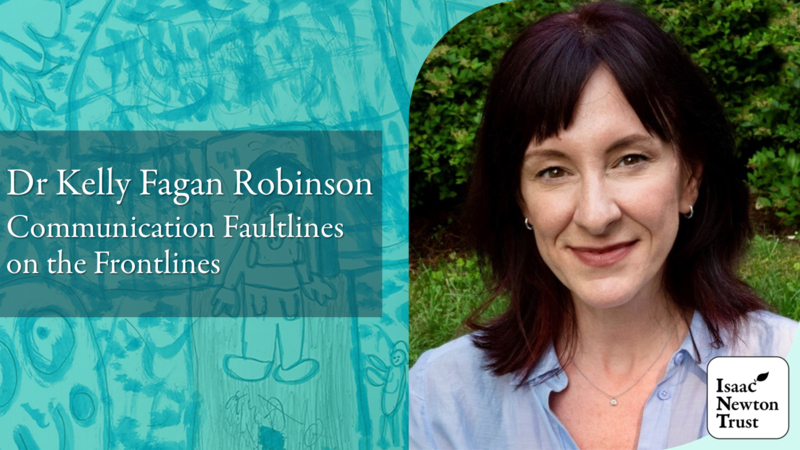
Project Spotlight - Climate Action Toolkit (CAT)!
We are proud to support the Climate Action Toolkit project through our Widening Participation and Induction Fund programme!
Climate Action Toolkit is a cross-disciplinary primary school programme designed to boost teacher confidence in delivering climate change education. By offering a structured scheme of work that integrates Arts, Humanities, and STEM subjects, alongside free, downloadable resources and hands-on activities, the Toolkit equips teachers to inspire pupils in Years 5–6 to tackle key challenges around climate change.
Led by Churchill College Fellow Rachel Thorley in collaboration with Amy Munro-Faure at Cambridge Zero and Lucy Cavendish College Fellow and Churchill By-Fellow Liam Saddington, these expert-designed activities make climate education engaging, hopeful, and action-oriented.
Learn more about the Climate Action Toolkit here
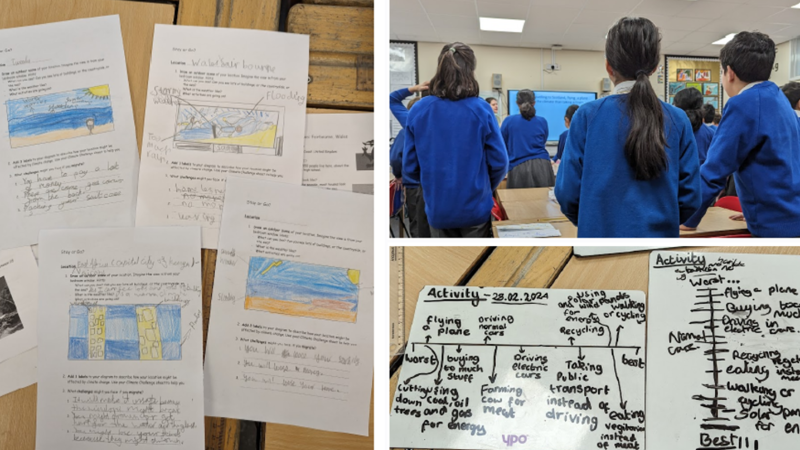
Project Spotlight - Sustainable Urban Futures!
We are proud to have provided support to the Sustainable Urban Futures project, led by Churchill College, University of Cambridge CORE Fellow Dr Rachel Thorley. SUF hosted a cross-disciplinary summer residential for Y12s from widening participation backgrounds to explore interdisciplinary courses through the lens of global sustainable development. Aspirational and confidence-boosting to encourage Y12s to apply to Cambridge or other leading universities.
It's been a hugely successful initiative and has received positive feedback from many student participants. Freddy told the team, “…SUF helped me finalise my next step in wanting to pursue mathematics. Mathematics is really something I share with people, so teaching at a high-level sounds perfect for me. With this career I could inspire and mentor someone else in pursuing mathematics, whilst possibly working on research and ideas of my own.”
This is an excellent and ongoing project, with Sustainable Urban Futures 2025 opening for applications soon!
Keep up to date with the application process on their website here
Find out more about previous residentials and other outreach programmes on their website
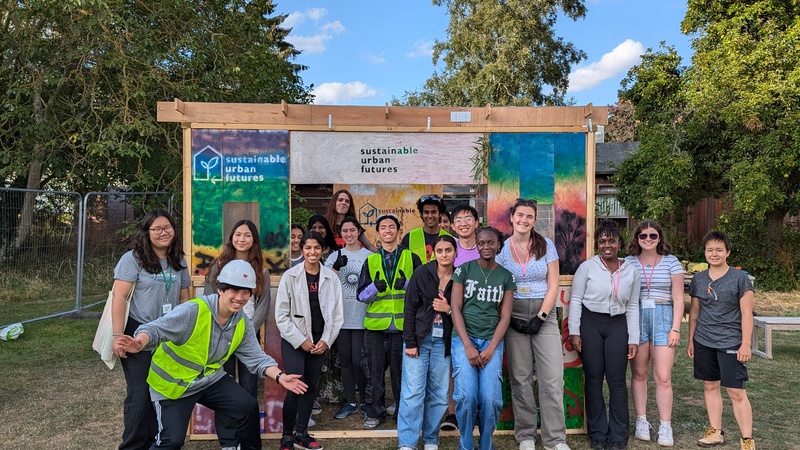
The Isaac Newton Trust Publishes 2023-24 Annual Report
We are pleased to announce the publication of our 34th Annual Report for 2023-24, which is hot off the press!
A great deal has changed over the last year as we continue to enjoy the support of Trinity College Cambridge. Not the least of which, the Trust has a new director, and the baton has officially been passed from Dr Laurie Friday to Dr Gemma Burgess.
Many of you will know Gemma from her roles as Vice-Master of St Edmund's College, University of Cambridge and Director of the Cambridge Centre for Housing and Planning Research in the Department of Land Economy, both of which she will continue in parallel with her new role at the Trust.
Thank you to all those who have made this past year a success. We are all looking forward to another year of supporting research at the University of Cambridge.
Read our Annual Report for 2023-2024 here.
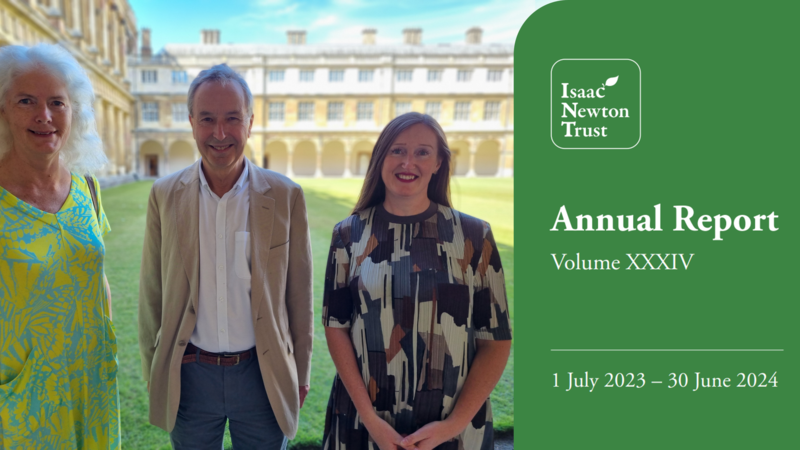
Project Spotlight - Pelican Podcasts, Spread your intellectual wings!
The Isaac Newton Trust is proud to support the Pelican Podcast widening participation initiative being run by Corpus Christi College Cambridge. This project is partially funded through our Widening Participation and Induction Fund, which aims to help Colleges reach out to prospective undergraduates and their families. This includes their teachers, parents, and guardians.
The project challenges teams of Year 12 students (Y13 in NI/S5 in Scotland) to create their own concept for a super-curricular podcast, focusing on a cultural object local to them. The team invite schools to enter teams of two to four students, who must work collaboratively whilst also utilising their independent research skills to stimulate holistic thinking and the creative use of academic resources. Shortlisted finalists will be asked to record their podcast to be hosted on Spotify and other streaming platforms. These students will then be invited to Corpus for a two-day residential, during which the winning podcast will be revealed.
Learn more about the Pelican Podcasts project here
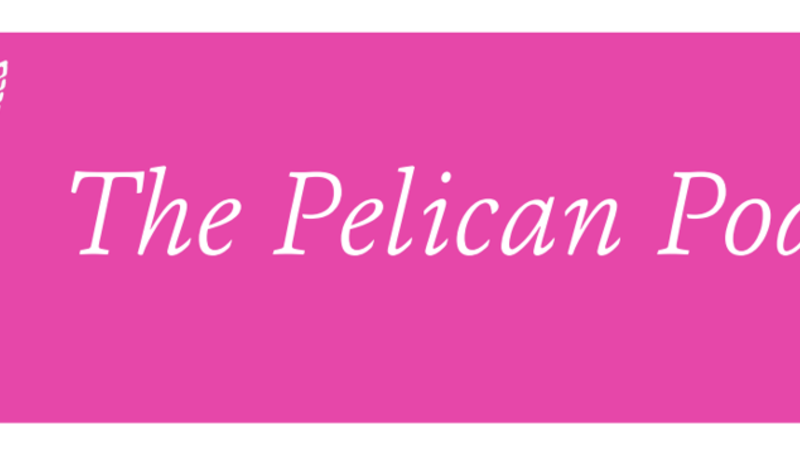
Post-Doc Spotlight - Dr Emmanuela Wroth!
In her groundbreaking project on Afrodiasporic divadom, 'Diasporic divas: racialised and gendered celebrity in Western Europe, 1715–1925', Emmanuela Wroth traces the conception of the cult of the diva back to eighteenth-century Europe.
You can read more about Emmanuela’s fascinating project in the September 2024 edition of the Leverhulme Trust Newsletter here
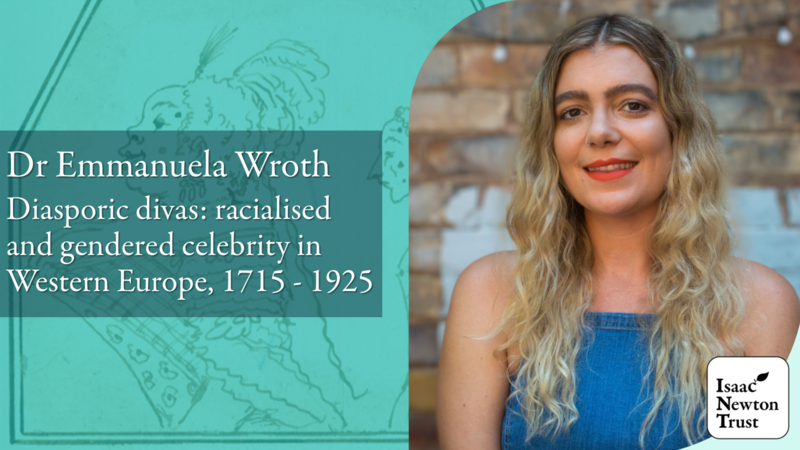
The Kavli Centre for Ethics, Science, and the Public Publish their first Annual Report for The Isaac Newton Trust
The Kavlic Centre for Ethics, Science, and the Public aims to enable global conversations on the ethical issues raised by discovery science. The Isaac Newton Trust is proud to support two post-doctoral research fellows, who are contributing amazing work to ongoing projects. These projects aim to understand what shapes public and scientists’ awareness of, and ability to act on, the ethical issues associated with science and also strive to facilitate encounters between members of the public and scientists to anticipate and engage with ethical questions associated with science. Both PDRAs continue to be the only full-time staff members in the Centre and thus are key, core staff delivering the Kavli Centre strategy.
We are thrilled to hear about the success of these projects to date and cannot wait to see how they develop. Check out the amazing work being done by the team on their website.
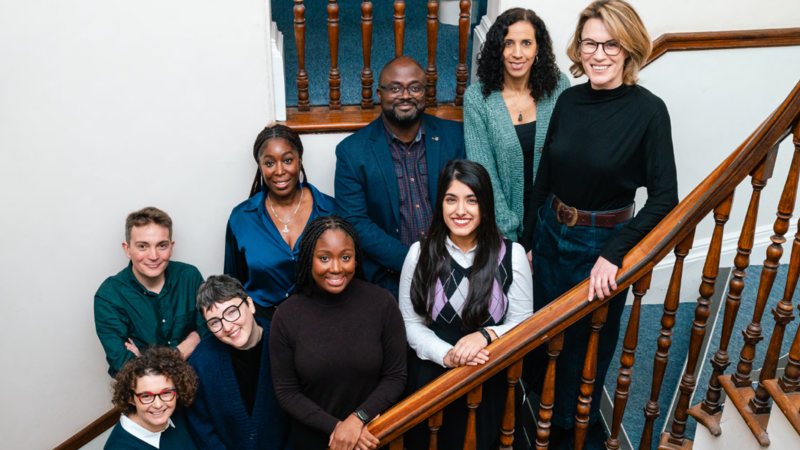
Project Spotlight - Educational Escape Room: The Search for the Scientist's Secret!
With the support of INT’s Widening Participation and Induction Fund, Dr Paul Elliott and his Team at Homerton College have created one of the largest and most exciting educational games in the country. Students at widening participation schools can take part in the games at Cambridge or in ‘pop-up’ games at their schools. There are separate escape “rooms” focusing on Thinking Skills, Biology, Earth Sciences, Mathematical Games, Evolution and Astrophysics and Chemistry. Each “room” now has its own distinctive physical element (such as an arcade machine, an anatomical display and a countdown case). The rooms can be used in different combinations for different target groups, and in total there are now over 100 distinct puzzles, each of which is embedded in a range of statues, games, and household objects. The project is has been very well received and is in much demand.
